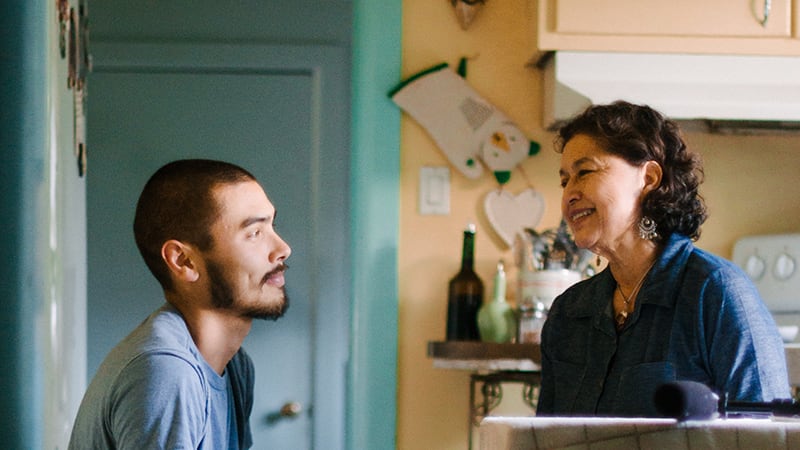Within Borrufa's minuteslong static shots, a viewer can wear many hats.
For example, once you realize you're watching Ireneo (Antonio Luna) simply sit in a chair for several minutes, welcome to amateur anthropology. Look how he keeps switching which leg he crosses in the figure 4 position…prideful but anxious.
Then, you're a film studies detective observing Leonora (Alma García) polish a floor: Is there some code to the mopping pattern?
As still more moments fall away, perhaps your mind turns childlike and your eyes register only the visible changes: Hey, a dog wandered through the corner of the frame! That's nice.
Regardless of whether it's right to classify Portland filmmaker Roland Dahwen's debut feature Borrufa as "slow cinema," the glacial pacing and minimal movement are the first stylistic choices many will notice. The entire two-hour film comprises approximately 20 camera setups, with scant dialogue to match. Within the multitude of negative space, though, is a family coming to terms with emotional cataclysm. Leonora and Ireneo's ironing, sweeping, barbering, tortilla making—none of it pauses for revelations of Ireneo hiding a second family.
"[The story] seemed in many ways suited for a melodrama, but I was interested in the quiet moments in between," says Dahwen, whose film is available on demand Sept. 17-28 as part of the Northwest Film Forum's Local Sightings Film Festival. "Life is a lot of work. And we tend to skip over these moments when we're making entertaining things."
Much of the specific daily life depicted here came about organically, as the script Dahwen had been writing since he graduated from Reed College's literature program in 2013 took on a new shape once the film's first-time actors joined several years later.
Alma García, mother of the director's friend, Portland writer Stephanie Adams-Santos, brought dignity and complexity to a role Dahwen says he was struggling to define. García also brought her own mother, opening the door for a heartbreaking foot-bath scene and heightening Leonora's overwhelming sense of duty amid the marital upheaval.
"Once the actors graciously agreed," Dahwen says, "I went back and rewrote everything with them in mind, knowing them as people and their habits."
Almost entirely in Spanish, Borrufa is technically a story of immigrated Portlanders, but it's not really about Oregon as a destination any more than it is about Guatemala as a homeland. Dahwen prefers leaving more overt political and cultural signifiers to more overt films. If you don't recognize the waters off Sauvie Island, for instance, you might never even know Borrufa was shot locally.
"There are a lot of representations in films about immigration and migration that fall on similar tropes and rhetoric," says Dahwen, offering sagas of new beginnings and forced departures as examples. "I was interested in making a film where all that is taken for granted. Of course, everyone belongs here as much as anyone belongs anywhere. I wanted to escape people being defined by their relationship to the state."
Instead, the characters are defined by the same dominant force that acts upon these slow-burning 16 mm frames: time. Its weight is felt everywhere, and fully experiencing the ticking seconds raises intuitive questions about the characters, too. If it takes this long to iron a shirt, how long does it take to fundamentally alter the constitution of family?
In turn, Borrufa finds its deepest moments in pondering how silence, memory, secrecy, even dreams flow through generations. Particularly as they relate to the couple's son, Heldáy (Heldáy de la Cruz), these forces come through in a few strikingly written monologues.
"[Words] don't solve anything," Dahwen says, but the writer-director is simultaneously happy to share an axiom from Iranian master and stylistic influence Abbas Kiarostami: "In the total darkness, poetry is still there, and it is there for you."
While Dahwen was relatively happy with his film's COVID-shortened premiere at the Portland International Film Festival in March, he isn't shy about acknowledging that seven-minute foot baths aren't to everyone's taste in film. Still, one of the most beautiful qualities of Borrufa is its willingness to challenge not through pretension but understatement.
"I think a few people will find it worthwhile," Dahwen says, "and that'll be enough for me."
SEE IT: Borrufa screens online via Northwest Film Forum's Local Sightings Film Festival Sept. 18-27. Access tickets at nwfilmforum.org and your emailed receipt will contain a link and password for viewing.
